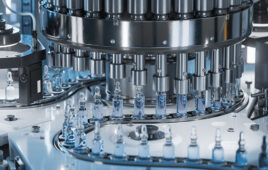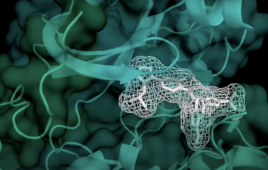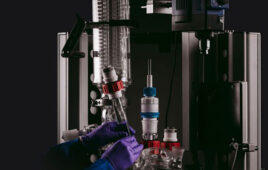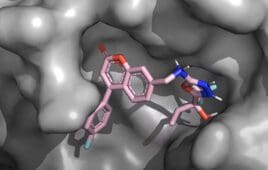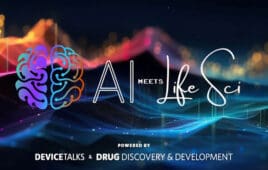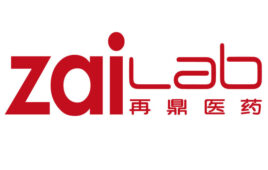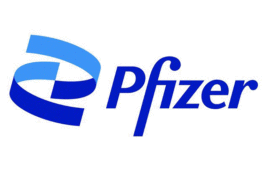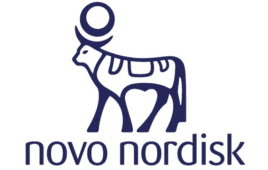[Updated April 23, 2024] In the face of rising R&D costs and growing pricing pressures from payers, the pharma and biotech sectors continue to transform to adapt to an evolving landscape. While workforce reductions persist in 2024 for some companies, major players like AbbVie, AGC Biologics, Amgen, Novartis and Thermo Fisher Scientific are demonstrating confidence…
20 biotech startups attracted almost $3B in Q1 2024 funding
The top 20 healthcare-focused biotech companies collectively raised $2.9 billion in the first quarter of 2024, according to data sourced from Crunchbase. That represents a 161% increase compared to the $1.1 billion raised by the 20 largest funding rounds involving healthcare-focused biotech companies in Q1 2023, indicating more confident bets on the market viability of…
Why Atomwise sees a ‘generational shift’ in drug discovery with AI applied to screening
Atomwise’s AIMS (Artificial Intelligence Molecule Screening) project has demonstrated significant potential to accelerate drug discovery. In a landmark multiyear study published in Nature Scientific Reports, the project used Atomwise’s AI platform, AtomNet, to successfully identify structurally novel compounds across a diverse range of therapeutic targets. In the virtual high-throughput screening (HTS) study, AtomNet analyzed 318…
Pitt’s high-performance computing upgrade signals accelerated translational research
The University of Pittsburgh’s recent, significant expansion of its high-performance computing capabilities, courtesy of a gift from Dell Technologies, indicates a strategic commitment to using large-scale data analysis for faster translational research. The additional 9.672 gigaFLOPS of computational power – translating to nearly 9.7 trillion additional computations per second – could help Pitt’s Innovation Hub…
From AI transformers to computer-based reasoning to rethinking drug design: AI pioneers discuss the future
In a packed panel discussion at GTC, moderated by NVIDIA Founder and CEO Jensen Huang, the architects of the groundbreaking transformer model gathered to explore their creation’s potential. The panel featured seven of the eight authors of the seminal “Attention Is All You Need Paper” paper, which introduced transformers — a type of neural network…
Creating chemical diversity with flow chemistry
Flow chemistry techniques are increasingly being used in drug discovery to provide cost-effective access to a wide range of structurally diverse small molecule analogs, as well as access to previously underused or inaccessible chemistries. There are several ways that this powerful technique can be used to increase structural diversity when building candidate molecules, including linear…
NVIDIA exec on how ‘NIMs’ can help biopharma navigate the challenges of deploying generative AI
The buzz surrounding generative AI may be undeniable, but its real-world impact on heavily-regulated sectors like drug discovery continues to evolve. Consequently, most drug candidates, circa 90%, continue to fail. Kimberly Powell, vice president of Healthcare at NVIDIA, believes that a new microservices-based offering known as NIMs (NVIDIA Inference Microservices) could help pharma firms navigate…
Pushing the frontier of drug discovery with the world’s most powerful supercomputer
Oak Ridge National Laboratory’s Frontier, the world’s first exascale supercomputer with its dizzying 1.1 exaflop speed, is a game-changer for scientific domains ranging from drug discovery to material science and oceanography. The computer holds the top spot on the TOP500 list, an independent ranking of the world’s most powerful supercomputers. “It’s like having a million…
When will drug development have its ChatGPT moment? Inside ambitious AI initiatives at Sanofi and Medable
In episode 4 of Ai Meets Life Sci, Kayleen Brown, managing editor at DeviceTalks and Brian Buntz, pharma and biotech editor, chat with Helen Merianos, Ph.D., head of R+D portfolio strategy at Sanofi and Michelle Longmire, MD, CEO of Medable. The focus? The two-fold application of AI in their respective companies’ technologies, both for scientific advancement…
Supercomputer-based Bayesian approach to AI pays dividends for BPGbio
In an AI hype-filled biopharma industry, one company is taking a back-to-basics yet supercomputer-powered approach — using Bayesian analysis on massive patient datasets to guide drug discovery. The company crunches trillions of data points per patient. “It’s massive, which is why we use a supercomputer,” said Niven R. Narain, Ph.D., BPGbio CEO. The company has…
Moving beyond buzzwords: When will a rising AI tide lift all Big Pharma boats?
For all of the talk about AI in drug discovery and development, few Big Pharmas are putting up big bucks in AI spending. A CRB survey from late 2023 painted a conservative picture: about half of drug developers planned on allocating between $1 and $10 million for data and AI projects over the next two…
Quantum promises a bright future for the pharma industry
Quantum computing technology continues to advance closer to an everyday reality. While the potential applications of quantum in certain sectors are more speculative, the pharmaceutical industry is poised to be transformed by quantum technology.This sector is likely to be the fastest to unlock the benefits of quantum computing, once the technology is fully realized. But…
Zai Lab’s unified approach to tackling cancer, autoimmune, and neurological diseases
Zai Lab is a global biopharmaceutical company founded in 2014 and based in China and the U.S.. Led by Chairperson and CEO Dr. Samantha Du, the company now has more than 2,000 employees internationally. Focusing on developing novel therapies for oncology, autoimmune disorders, infectious diseases, and neurological disorders, it has built a broad pipeline of…
At AWS re:Invent, Pfizer exec frames digital as a core business strategy
In the midst of a global pandemic, Pfizer, under the leadership of its chief digital and technology officer Lidia Fonseca, achieved what was once thought impossible. The company, with the partnership of BioNTech, developed a COVID-19 vaccine in only 269 days, a process that traditionally would have taken 8 to 10 years. While prior research…
Genmab’s data-driven strategies speed up drug commercialization
Genmab’s senior vice president, global head of data science and AI, Hisham Hamadeh, describes the company’s journey to becoming “a data-driven decision-making company.” In one sense, there is little choice but to do so. “We’re swimming in data like never before. We’ve seen the volumes of data, the ability to compute on that data, and…
50 of the best-funded biotechs of 2023
As the year draws to a close, it is clear that molecular science and diagnostics is the hottest funding area in the biotech industry. In an analysis of 50 of the best-funded biotechs of 2023 focused on human health, molecular and science and diagnostics startups collectively attracting roughly $945 million, dwarfing the figures in other…
Quantum leaps in drug discovery? NobleAI joins forces with Microsoft while King’s College London aligns with Kvantify
The word “revolutionize” gets thrown around a lot in describing the potential of emerging technologies. But quantum computing could make good on the promise to disrupt healthcare applications ranging from drug discovery to medical imaging. Theoretically, a quantum computer with 300 quantum bits (qubits) could crunch more calculations in an instant than there are atoms…
A year in review: AI’s evolving role in drug discovery and development in 2023
In the realm of drug discovery, AI is making waves, and 2023 could potentially be a pivotal year for this technology. As the technology enters the popular consciousness, pharma employees are wondering “why they can’t have similar AI-driven tools for their professional tasks,” said Diane Wuest, head of digital R&D at Sanofi, in a recent…
NLP in drug discovery and the quest for the ‘right’ research elements
In drug discovery and development, data sources are as diverse as they are plentiful. There are comprehensive databases brimming with molecular targets, cellular processes, genomic sequences, proteomic profiles, and metabolite patterns that shed light on disease pathways. Data possibilities in the patient care realm are similarly vast, spanning electronic medical records, imaging datasets, and even…
The evolution of drug discovery: Opportunities and obstacles with ML and AI development
The potential for artificial intelligence (AI) and machine learning (ML) to reshape drug discovery and development is immense. From expediting learning and driving discoveries to managing large-scale data sets and generating fresh insights, the true scale of AI’s influence on the industry is only starting to be understood. But with great potential comes great responsibility.…
Novo Nordisk stops once-weekly semaglutide kidney outcomes trial early following interim analysis
Novo Nordisk will halt the phase 3b FLOW trial, which investigated the effects of once-weekly injectable semaglutide on kidney outcomes in individuals with type 2 diabetes (T2D) and chronic kidney disease (CKD). The company reached the decision following the recommendation of the independent Data Monitoring Committee (DMC), following an interim analysis that met pre-specified criteria…
From FTC’s tightened grip to PULSE Coalition: A timeline of the life science M&A landscape
The biopharma industry is pushing back against increased scrutiny of mergers and acquisitions from the Federal Trade Commission (FTC). More than 30 biopharma companies and industry associations announced the formation of the Partnership for the U.S. Life Science Ecosystem (PULSE) to advocate for the role of M&A activity in the biopharma sector. A M&A landscape…
How data-savvy are you in drug discovery?
Hey there, drug discovery professionals: Ever wondered where you stand in the grand scheme of drug discovery data-savviness? We’ve created a short quiz to help you get an idea. Drug discovery and development is an increasingly data-intensive field, underscoring the need for data science to be a core drug discovery discipline. The industry has taken…
Ginkgo Bioworks and Google Cloud forge five-year AI and biology partnership
Founded in 2008, Ginkgo Bioworks’ stock jumped almost 25% on August 29, hitting $2.22, after unveiling a five-year partnership with Google Cloud. The partnership centers around the development of novel AI tools for biology and biosecurity. In particular, Ginkgo hopes to further its mission to make biology easier to engineer in the AI era. Opting…
Assessing the techbio landscape: hype or substance?
The venture capital firm Artis Ventures, founded in 2001, coined the term “techbio” sector to describe biotech platforms where technology and engineering take the lead in advancing drug discovery and biomanufacturing. In circa 2019, the firm contributed to shaping the techbio landscape by setting up venture capital fund named Artis techbio that bridges the gap…
